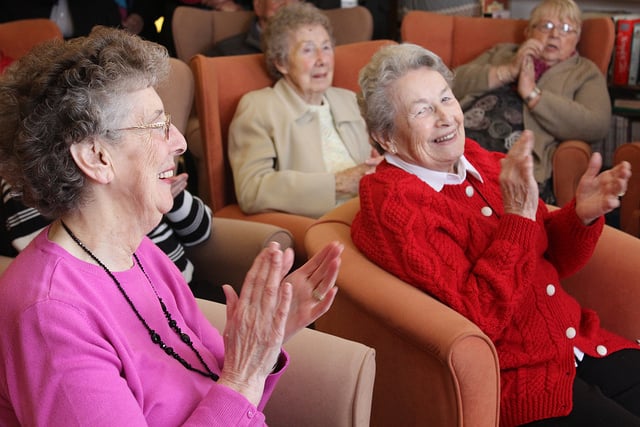
Increasingly what persuades funders is the more personal stories of participants.
Photo: Bromford (CC BY-SA 2.0)
Self-evaluation with confidence
Are you familiar with Arts Council England’s self-evaluation framework? Probably not, says Mandy Barnett, but a new version aims to be simpler and more relevant, and to empower the arts to explain its value with tenacity.
I’ve been of the opinion for years that the cultural sector is doing a poor job of explaining its value (I include myself as a former museum designer, cultural manager and now consultant). I believe this is down to evaluation that isn’t fit for purpose, and those I have spoken to generally agree. Our landscape is very complex, and evaluation often falls between two stools – either not robust enough to make policy or too dry and dull for the creative context.
Self-evaluation rooted in project evaluation will make the link between what we do and the difference we make more explicit
But increasingly, I’m finding that what persuades funders is more personal. For example, at MB Associates we’ve just evaluated six arts organisations in Kent piloting a public health and wellbeing commission. It wasn’t the use of the Warwick-Edinburgh mental wellbeing scale that persuaded the health commissioners of the effectiveness of the arts, but seeing the vulnerable young participants in action. (You can view the commissioners’ film clips in our online toolkit.)
Perhaps we have been channeling our energies into the wrong place, looking out when we should be holding a mirror up to ourselves. In the cultural sector our projects and services are increasingly evaluated, but it’s not matched by consistent, organisational learning that establishes how to improve as a result, how to demonstrate quality and impact strategically or how to create organisational resilience, from full-cost recovery to balancing innovation with bums on seats.
We’ve set up a new exchange network, Make Culture Work, which is for anyone interested in how arts and culture impact on people and places. When we were asked by Arts Council England (ACE) to review its self-evaluation framework (SEF) we suggested we do so through the network. Most don’t know about the SEF, only 6% use it and it is currently unwieldy and out of date. But there is an appetite for self-evaluation, especially for something that is bespoke for arts and culture and can be embedded into everyday work.
Our research into the market for a new SEF for the cultural sector included three more Make Culture Work events and a survey that collected responses from over 80 creative and cultural professionals. The new SEF will be much simpler but also fit for its diverse users. One suggestion is that it is designed to be used post-project where there is already a culture of review, so that it builds wider organisational or professional learning on to service evaluation.
A recent workshop we ran for music education hubs (MEHs) illustrates how the SEF could work. We used an approach we had developed for schools to link the MEHs own SEF results, their school priorities and their workforce development. The workshop explored how the ‘quality principles’ for work with young people could feed into a ‘Plan, do, review’ process for whole hub improvement, and dovetail with the workshops on offer by ACE. Embedded self-evaluation will encourage the same joined-up approach, so we don’t waste money investing in training that is not relevant or writing business plans that distract rather than help us deliver.
Another challenge we come across is how organisations can articulate what works so that they are not always being asked to innovate but can deliver according to their expertise. Self-evaluation rooted in project evaluation will make the link between what we do and the difference we make more explicit. By gradually compiling post-project reviews in the same format, over time it will become apparent which elements of quality are having the greatest impact.
We hope to provide an approach fit for large organisations too. When we worked with an international cultural organisation last year, the pace and commitment of their work was astonishing, but it left little room for reflection to be recorded and turned into workforce-wide development. The self-evaluation is designed to instil approaches where learning is shared so a member of staff leaving doesn’t leave the rest of the team reeling.
We hope that individuals and organisations will be much more motivated to self-evaluate with this new resource and as a result the sector can be more than the sum of our parts. But we need more collective drive too. There are some highly effective alliances popping up around the country as a result of the adversity we now face, such as Create Gloucestershire run by Pippa Jones (another of the Make Culture Work founders) with Jocelyn Cunningham. Several of these groups met this week to discuss how they can self-organise to create local infrastructure.
The particular interest of Make Culture Work is to join up those local strengths and share learning nationally about what works, especially with frontline practitioners and with our partner in higher education, the National Centre for Public Engagement. This will build on the work of others such as Culture Case and What Next? so we can make the case for culture together, better and with more self-confidence.
Mandy Barnett is Director of MB Associates.
www.mbassociates.org
www.makeculturework.org.uk
[email protected]
Join the Discussion
You must be logged in to post a comment.